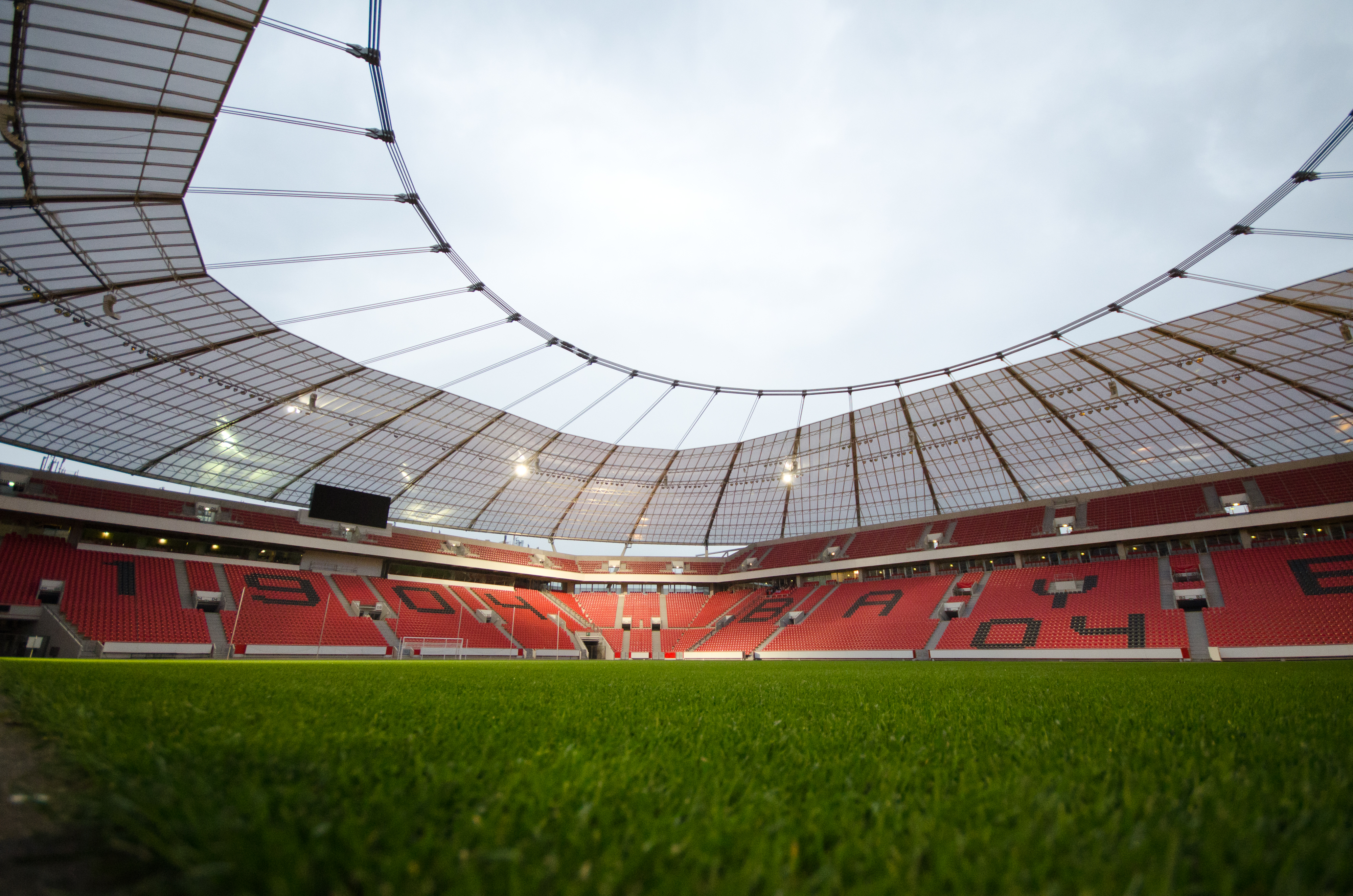Team:Bielefeld-Germany/student-convention
From 2011.igem.org

2nd BIO.NRW (PhD) Student Convention
The iGEM Team Bielefeld was honored with an Invitation to the [http://www.bio.nrw.de/studentconvention 2nd BIO.NRW (PhD) Student Convention] at the [http://en.wikipedia.org/wiki/BayArena BayArena] in [http://en.wikipedia.org/wiki/Leverkusen Leverkusen]. The congress gives lifesience (PhD) students the opportunity to meet representatives of industry and academia, get information for career entry as well as improve their soft skills in workshops. Apart from the opportunity to participate in the convention, the role of the iGEM Team Bielefeld was to give a project presentation about iGEM as an example for remarkable scientific dedication during academic studies. The VIP-lounge in the stadium of the national league soccer team [http://www.bayer04.de/B04-ENG/en/_site_index.aspx Bayer Leverkusen] served as the venue for the two day congress.
The first day began with interesting talks about the perspectives, possibilities and opportunities in the pharmaceutical and healthcare industries given by company representatives. One of the highlights was the key note speech “No Limits” by [http://en.wikipedia.org/wiki/Joey_Kelly Joey Kelly], a former well known musician and now extreme athlete. The diverting talk showed how you can accomplish your goals with motivation, commitment and persistence. The supporting program featured a stadium tour, dinner and a relaxed evening on the grandstand.
For the 110 participants the second day started out with workshops to for example improve one’s soft skills or in project presentation. Furthermore some of our team members took part in a workshop for communication biotechnology, which has a special relevance for the public relations in our iGEM project.
In the afternoon it was time for our iGEM project presentation. We focused on iGEM in general, the main principle of standardized DNA parts, example projects, the motivation behind participating in a competition like iGEM and gave an overview how to build up a project from the sketchbook to the final product. Bielefeld University has still the only iGEM team in the state of North Rhine Westphalia, one of the most populated regions in Europe and host of the convention. Therefore our goal was not to present scientific results, but to talk about what is special in projects like iGEM and encourage other students and faculty members to start a new iGEM team in their own schools.
The whole event was a success for us as a team, since we had lots fun and learned new aspects in the workshop. Most importantly we were able to present about iGEM and show new people what is special about the iGEM spirit as well as open source biology.
Abstract of our talk
The iGEM (international genetically engineered machine) competition enables the possibility for students to fulfil their own biological project. It is an international competition dealing with synthetic biology, in which undergraduates can participate. Once a year it is arranged by the MIT (Massachusetts Institute of Technology) in Boston, USA. Under the umbrella term „Synthetic Biology“, teams with a multitude of backgrounds in life sciences as well as software development, design and art teams can participate. So the project topics are broadly diversified. All teams start with the same toolbox of standardized DNA parts – the Biobricks. These parts combined with new designed Biobricks are used to build novel biological systems in living cells. Further focuses of the competition are biosecurity and the bioethical aspects of synthetic biology. These aspects are taken into account in public discussions.
In 2011 more than 150 teams from all over the world will be
participating. The teams have to do all the logistical and organisational work as
well as public relations. This includes providing labspace, organizing a manageable
time schedule and accomplishing all the fundraising on their own. Another main
focus is the scientific communication of synthetic biology, the iGEM competition
and the student‘s project. All in all the students will perform a self-organised project
from the sketchbook to the final product.
The last year’s project of the iGEM team Bielefeld concerning a biosensor for spiciness was honoured with a gold medal. In 2011 the iGEM team Bielefeld is participating for the second time. The students will create a cell free analytical system for the detection of environmental toxics, which is fused to molecular self assembly systems (S-layers).
We want to thank [http://www.bio.nrw.de/en BIO.NRW] for hosting this great event and giving us the opportunity to give a presentation.
 "
"



